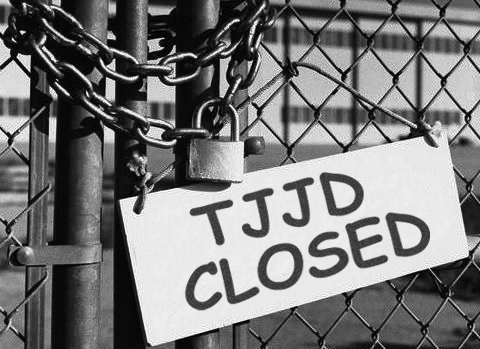Recent reports of violence and out-of-control youths at some of the six remaining larger TJJD facilities have prompted some state legislators to suggest they would be open to seeing more of them closed. State Sen. John Whitmire said in a recent Austin American-Statesman article, “I’d support closing more facilities.” According to the article, some lawmakers are discussing the idea of shutting down three more facilities and contracting one more out to a private vendor.
 Legislators blame the agency itself for these current problems, claiming the reforms of 2007 were not correctly implemented. They conveniently ignore, however, the role that the closure of half the agency’s facilities played in the recent incidents. By rapidly shrinking the agency, closing six facilities, laying off hundreds of experienced staff, and shifting resources to fewer facilities around the state, lawmakers created the environment which makes the current problems possible.
Legislators blame the agency itself for these current problems, claiming the reforms of 2007 were not correctly implemented. They conveniently ignore, however, the role that the closure of half the agency’s facilities played in the recent incidents. By rapidly shrinking the agency, closing six facilities, laying off hundreds of experienced staff, and shifting resources to fewer facilities around the state, lawmakers created the environment which makes the current problems possible.
When asked what would be done with youths who could no longer be committed to TJJD after the proposed closures, lawmakers and advocacy groups suggest that county governments take them. They point to evidence that youths who stay in county facilities have a lower recidivism rate and cost taxpayers less than when they are committed to TJJD. This evidence ignores the fact that many youths in TJJD have already been through the county probation programs and detention centers. They were sent to a state facility because they continued committing crimes.
The population that TJJD handles is different than the youths who stay at the county level. The 2,000 youth offenders in state facilities are the “worst-of-the-worst”, having committed the most serious felonies. Providing counseling, case management, education, health care (mental and physical), and social work for this population is, of course, going to be more expensive, but this is what these youths need in order to turn their lives around and keep from going into adult prisons.
The same studies that lawmakers and advocates point to when they suggest keeping youths at the county level also show that 75% of county juvenile justice programs lack the funding to house additional offenders. The idea that county governments would be able to pick up the slack created by shrinking TJJD has proven to be false. What happens instead is that these youths fall through the cracks, most often ending up in the adult prison system.
The solution now is not to do more of the same. The real issue is that TJJD has been underfunded, understaffed, and in a constant state of flux for years. If lawmakers want to solve the agency’s current problems, they will need to address those issues first. Closing more facilities will only create more chaos as irreplaceable and experienced TJJD staff are lost, and troubled youths who were once housed in separate facilities based on mood are mixed together.
What the union is calling for:
-
A commitment from state legislators that Texas is dedicated to the mission of TJJD: rehabilitating troubled youth in a secure and safe environment.
-
More funding for more frontline staff and resources on the ground. Staff are still being called in on their days off and working a 12-hour shift is becoming the new normal. When staff are overworked and tired, it creates dangerous situations.
-
No more closures! TJJD cannot succeed in its mission if experienced, dedicated staff are getting laid off or are being asked to move every few years. The need for this agency to exist is there and it needs staff and facilities to do its job.
What we as state employees and union members need to do now:
-
Ask coworkers to join TSEU! We all need to stand up for our jobs and ourselves.
-
Call our legislators and ask them to support full funding for TJJD and to fight any closures or privatizations. Find your legislator at www.fyi.legis.state.tx.us.
-
Join our Political Action Fund, COPE! We have to work to elect good legislators and un-elect those who oppose us. Get involved in your union’s political work.